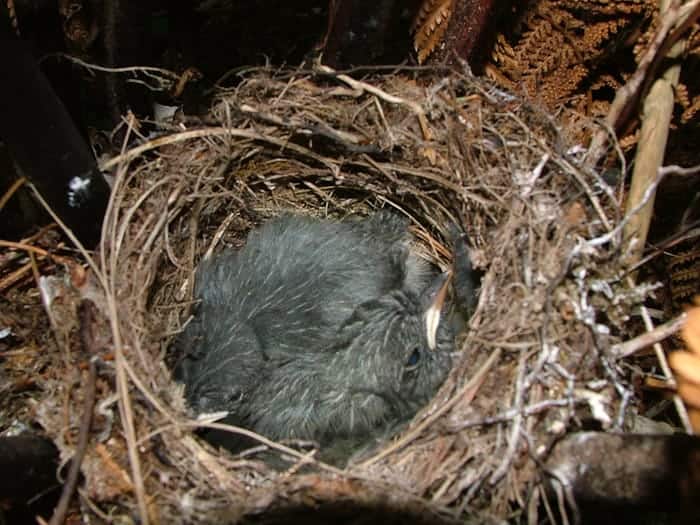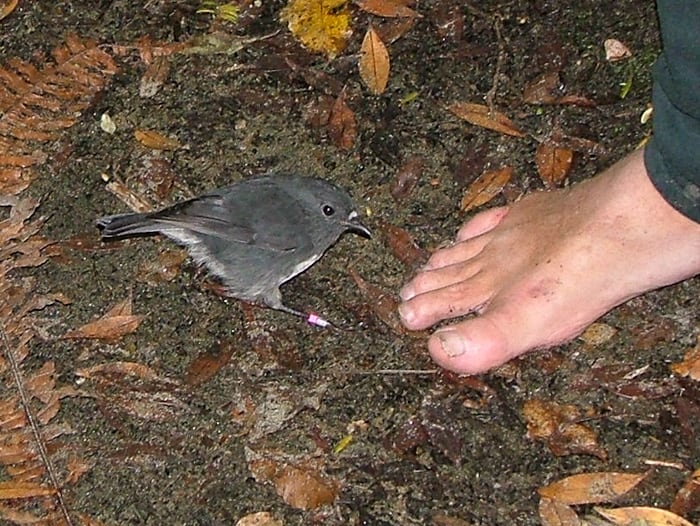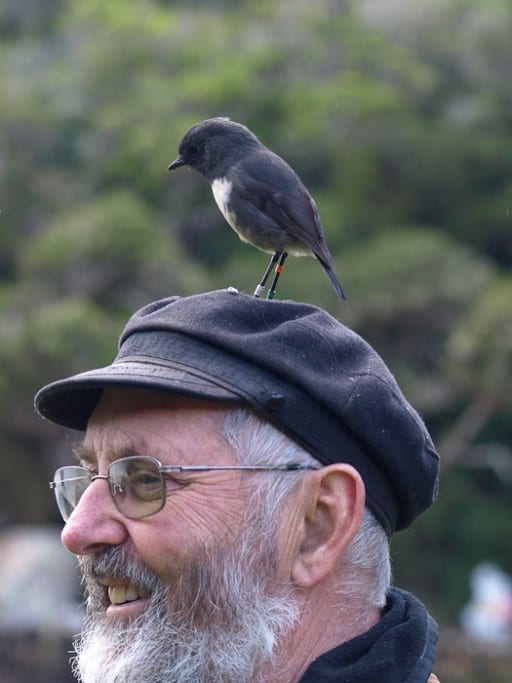Stewart Island Robin, (toutouwai)
Stewart Island Robin
[flowplayer src=’https://focusingonwildlife.com/news/wp-content/uploads/2012/05/robin-lead-in.mp4′ width=640 height=480 splashend=show splash=’https://focusingonwildlife.com/news/wp-content/uploads/2012/05/si0067.jpg’ autoplay=false]
Stewart Island Robins are yet another New Zealand species to have suffered the depradations of introduced rats. Nesting as they do so close to or even on the ground, their habit of just dropping the fecal sac over the side of the nest, rather than flying away with it almost guarantees a rat will find and destroy the nest. To be fair to robins they are not alone in New Zealand with this failing, but as with many other of our native species it does prove fatal. This particular fatal flaw stems from evolving in a mamal free environment, and so never learning basic skills other birds worldwide have perfected.

Apart from areas of manaka forest, where robins are forced to nest quite high up and so somewhat immune from rat predation, they have virtually vanished from Stewart Island forest. And in fact I have see just one in heavy forest in the last 15 years away from Ulva Island. They have no concept that mamals are

dangerous and will come very close and even pearch on people. However should a weka come by they will be up the nearest tree screaming their heads off (weka are a native flightless rail and although omniverous are a significant predator of ground and close to ground nesting birds)
However after Ulva Island was cleared of rats in the 1990’s robins from Freshwater manuka forest were reintroduced and have flourished. Increasing from a couple of dozen or so to well over 400.
They have an endearing habit of following people for the bugs we disturb when walking through the forest litter. Not I hasten to add because we have trained them, but rather I suspect because our feet “scritching” up the litter mimics the feet of moa. Moa are of course long extinct, but behavour “hard wired” into a creature is with the species for all time. Our robisn are highly
territorial and the males will fight agressively, though I have never seen a deathe result as I am told happens with the English Robin. One of the saddest sights to watch is a male parent start to turn on his son, after feeding the offspring since hatching. The young male of course cannot understan why it’s father is turning on it. The “separation” can take two or three weeks to achieve sometimes and can result in the juvenile being plucked quite bald.
Our guests love robins, as do we.
Peter Tait
Peter Tait is a professional nature guide based at Stewart Island, New Zealand, and he works primarily on Ulva Island Open Sanctuary. Peter has been resident on the Island for over 40 years and was one time Forest Ranger in Charge of Stewart Island. Fishing followed forestry and was in turn followed by Talisker, a 17m charter yacht. He is qualified Skipper Deep Sea Fishing Vessel. In addition to guiding Peter and his wife Iris are hosts at Sails Ashore Lodge.

Leave a Reply